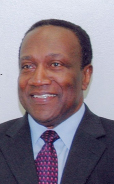CARICOM Secretary-General Edwin Carrington says it is necessary to have significant progress in the area of contingent rights in light of hindrances to the establishment of a protocol on those rights.

“We can and must do better as there is an urgent need to make significant progress in this area,” the Secretary-General stressed, according to a news release from the Secretariat at Turkeyen.
In a brief statement read by Ambassador Lolita Applewhaite, CARICOM Deputy Secretary-General, at the opening of the third meeting of officials on Contingent Rights at the CARICOM Secretariat in Georgetown, Carrington pointed to capacity and resource constraints that some member states had indicated would prevent them from providing full access to social services.
Those constraints, he pointed out, have proven to be “a major hindrance” in advancing the work that needed to be done on the development of the protocol.
The release noted that negotiations for the protocol began almost four years ago, but officials are still at the stage of identifying the rights to be included in the protocol.
In July last year, the Conference of Heads of Government approved the definition of contingent rights as “rights, which are granted to a CARICOM national and his or her spouse and immediate dependent family members if the principal beneficiary has exercised the right of establishment, provision of services, movement of capital or free movement of skills”.
The Heads of Government also approved the granting of the right to primary education.
Carrington said further that contingent rights were closely related to the free movement of persons in the CARICOM Single Market and Economy (CSME), and that persons who had moved or wanted to move under the various CSME arrangements were wondering what to expect in terms of rights in the receiving country.
He told the delegates that in 2009, the Secretariat witnessed a noticeable increase in issues and questions related to contingent rights matters.
“…it is my belief that if in the coming two days we are fuelled by the spirit of regional integration, we will be in a position to make progress in this critical area. Our community is depending on us,” the Secretary-General is quoted as saying.
Meantime, he expressed his appreciation to the United Nations Development Pro-gramme (UNDP) for its support in the past years for funding major activities relating to contingent rights, such as the various meetings and studies that were done.
He also thanked the European Union (EU) for supporting the hosting of this critical meeting
Delegates at the two-day meeting were expected to consider the results of two studies, one on a policy framework for contingent rights, and the other on binding commitments made by member states at the bilateral, hemispheric and international levels in the areas that are relevant to contingent rights.
Meanwhile, the meeting on contingent rights opened at the CARICOM Secretariat with the observance of a moment’s silence for those who have died in the powerful earthquake in CARICOM member state, Haiti.
The CARICOM Deputy Secretary-General who led delegates in Georgetown, and in Kingston, Jamaica via videoconferencing in observing the moment of silence also urged them to continue to keep the people of Haiti in their private thoughts and prayers.
Applewhaite also read a brief statement from the Secretary-General who was in the Dominican Republic attending a consultation on Haiti.





